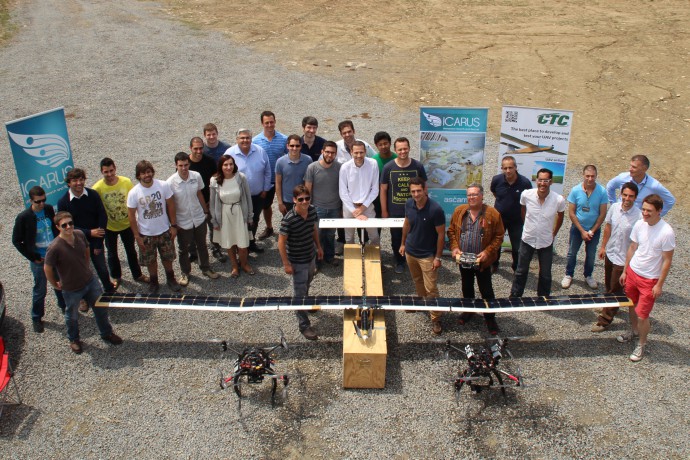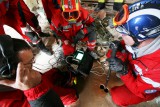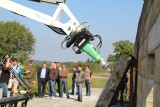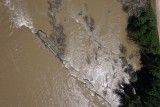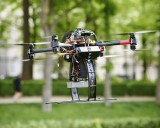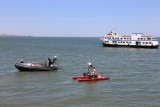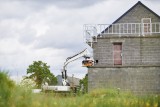ICARUS successfully completes autonomous UAV field tests in Barcelona, Spain
Representatives from the ICARUS project gathered between the 21st and the 25th of July, 2014 in Moiá, Barcelona, on an airfield owned by CATUAV, a local company specialising in remote sensing using Unmanned Aerial Vehicles (UAVs).
The capabilities of the latest UAVs and sensors developed within the context of the project were put to the test by the project partners.
The first device to be tested was the outdoor quadrotor, which has been developed by the ASCAMM Technology Centre, the host partner, and is capable of gathering thermal data as well as stereo images that can be used to provide a virtual 3D visualisation of buildings to detect survivors during Search and Rescue (SAR) operations. The UAV is able to fly autonomously for approximately 30 minutes and has 8 propellers, making it stable and resistant to cross winds.
There was also a flight test of the Atlantik-Solar UAV developed by the Autonomous Systems Lab at the Swiss Federal Institute of Technology of Zurich (ETHZ) in cooperation with industrial partners. This solar-powered long endurance aircraft is capable of flying for days without having to land and it also has autonomous flight capabilities. The Atlantik-Solar is able to continuously gather images from the ground and can be used to produce 2D maps of disaster areas that can provide critical situational awareness to SAR operators during crisis response operations.
Other tools tested during the four-day flight test include the Command and Control & Intelligence (C2I) system, developed by Space Applications Services, a Belgian company. This tool aims to improve crisis management and emergency response through the use of intuitive interfaces that convey detailed information about the development and evolution of disaster or crisis situations.
The first three days were dedicated to the assessment and integration of the systems’ capabilities and on the last day, the consortium invited media reporters and end-users who were keen to see the systems in action, to the site.
Geert de Cubber, from the Royal Military Academy of Belgium (RMA), who coordinates the ICARUS project, commented on how the tests had been performed so successfully:
"..we are really starting to see the project coming together now and we are very proud of the work carried out by the consortium so far.."
The next testing phase will take place from the 8th to the 12th of September in Marche-en-Famenne, Belgium, where the UAV systems will be tested in an integrated scenario together with UGV (Unmanned Ground Vehicle) platforms.
Additional information can be found in the following web pages: (only available in Spanish and Catalan)
La Vanguardia (National Newspaper): http://www.lavanguardia.com/20140729/54413301633/drones-al-rescate-paloma-arenos.html
Regio7 (Regional Newspaper) : http://www.regio7.cat/bages/2014/07/25/moia-converteix-centre-proves-drones/277077.html
Nació Digital (Regional Newspaper): http://www.naciodigital.cat/noticia/71923/assagen/amb/drones/moia
ACN (Catalan press agency): http://www.acn.cat/acn/759079/Noticia/video/Noticia.html
Cat Radio (Catalan radio): http://www.catradio.cat/programa/1641/8-dies-a-la-setmana
- Login to post comments

